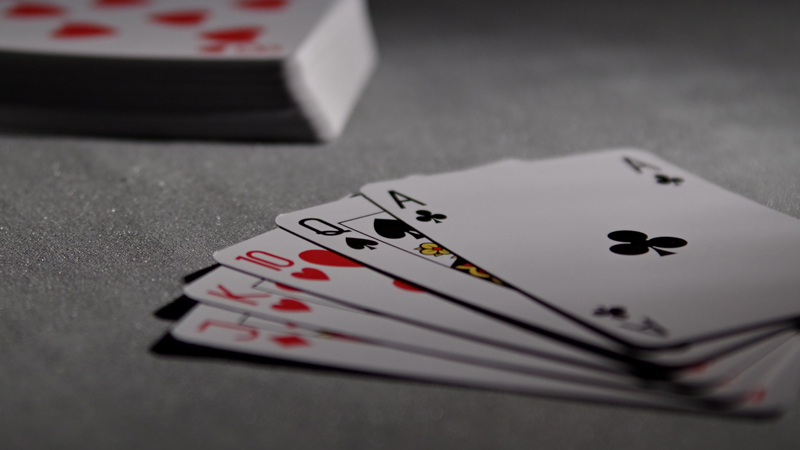To what do we attribute the popular renewed interest in poker in recent times?
Many factors come to mind. Chief among these factors the Internet. The internet has brought the game of poker into the mainstream. The ubiquitous poker tournaments on TV have also been helpful in making Poker popular.
One of the reasons Poker appeal to an increasing number of people is the fact that the game respects superior playing skills among players.
In a game of poker, a player competes with fellow players not the House, as such a player who possesses the right skill sets is likely to win.
It goes without saying that you can’t be successful at Poker if you’re not adept at concealing your emotions.
You have to put on your Poker face if you’re playing in a physical Casino. You may discount this hack if you’re playing online but keep in mind that a Poker face is not necessarily a literal expression.
Before we dig into the 6 Tips that will make you better at Poker, a little introduction into the nature of the game seem appropriate since there’s no telling who will read this article.
Poker Explained
First, you can’t play Poker if you don’t understand the basic order of the cards.
Most Poker games are played with a standard 52-card deck. This deck of cards have 4 suits, that is, Clubs, Diamonds, Spades and Hearts.
Each deck of cards has 13 cards of suit issued and all the suits are equal in value. More than 2 million card combinations are possible with a 52-card deck.
In a game of Poker, the ace is the key card because it ranks highest.
Essentially, a game of poker is about winning the pot of money by having the highest hand or bluffing to others that you do when you don’t.
Note that in some version of the game, Poker can be made to be about having the lowest hand in a round of game.
Poker players don’t play with cash in a physical Casino- they play with chips. The dealer in a poker game passes out the cards clockwise to the left.
Depending on the version of Poker being played, the table where the game is being played usually seats 7 to 10 players at a time.
Pro Tips for Poker
We can now consider 6 Tips capable of making anyone better at Poker.
1. Understand Betting Strategies
There are different strategies deployed in a game of Poker, depending on the kind being played.
Most Poker games start with an upfront wager known as the ’ante’. The ante affords a player the right to to participate in a game.
Typically, the amount paid for a wager will represent a percentage of the game’s minimum bet.
During most Poker games, there are several betting rounds. Since Poker isn’t notorious for uniformity, the number of rounds in a game differ.
After you have been dealt cards in a game of Poker, you should review your cards and decide what your your next line of action will be.
If your ’hand’ is a ’no-hope’ loser, you can decide to fold, that is, throw away the ’hand’.
You can decide to ’check’, that is, elect not to get but stay in the game, after reviewing your cards.
You can also ’call’ in a game of Poker. A ’call’ is when you bet the same amount as the original bet.
In a game of Poker, you can also decide to ’raise’; this is you increasing the original bet in a game
There are other advanced betting strategies you can consider but simplicity is underated.
2. Respect Betting Limits
For those familiar with Poker Tournaments on the web and on TV, ’No-Limit Poker’ is a thing.
In a ’no-limit Poker’ game, players are at liberty to bet any amount of chips at any time. In most physical and cyber casinos, poker tables have ’fixed-limit’ games. Fixed-limit games mean you can’t raise more than the fixed limit on the table even though the the limit is prone to be changed by the rounds.
3. Know when to Check or Fold
As a Poker player, you don’t have unlimited right to use the check option. After a player bets on the round, no one is allowed to check.
For example, if the first player exercises the call option, that is, bet the same amount as the original bet on the table, the other players can only exercise the call option, the raise option or the fold option, leaving out the check option.
If the first player, however, exercises the fold option, the second player is allowed to exercise the check option since the first player didn’t place a bet.
If a player checks, he retains the right to call or raise any bet made by players who followed him.
There is a technique known as the the checkraise; this occurs when a player initially checks but raise a bet made by another player in the same betting round.
The technique is usually deployed by a player with a monster hand.
In Poker, a monster hand means…
4. Know when to pursue the raise option
When a player raises the bet, here’s what he or she is saying, ” I have a great shot at winning”.
Other players have to react to this message one way or the other, meaning they have to at least match that player’s bet or Fold.
Players who fold don’t trust their chance of winning while those who match the player’s bet may be calling the player’s bluff or optimistic.
5. Know when and how to Bluff
A mix of great skills, luck and psychological manipulation is integral to winning at Poker.
The expression ’Poker Face’ isn’t a superfluous one. It bears witness to the fact that ordinary changes in a player’s facial expression and overall demeanor can win him a game or cost him a game.
The goddess of Poker aids the vigilant.
Nevertheless, a Poker player who obsesses about his opponent’s mannerism should understand that it’s not a precise science. It’s a game of bluff but there’s more to poker than bluffs.
Sometime you’re on to something, other times you’re being played.
6. Steer Clear of obvious Poker Pitfalls
Poker is a complex game, no doubt. Even Poker professionals agree that there’s always something new to be learnt. When playing Poker at a physical or cyber casino, don’t play with levity.
There’s money at stake. In addition, respect your financial condition when playing Poker. The pressure of losing money in a game of Poker is twice as heavy if you lost money you couldn’t afford to lose. The pressure will like throw you into a tailspin, guaranteeing that you will likely lose more money.
Avoid being predictable as a player and overtly involved in the game emotionally.
Final Words
Ultimately, the emotional and psychological dimensions to Poker suggests that the prudent attitude a player can have is quiting while he or she is still ahead.
Use these tips and tell us how it went.








